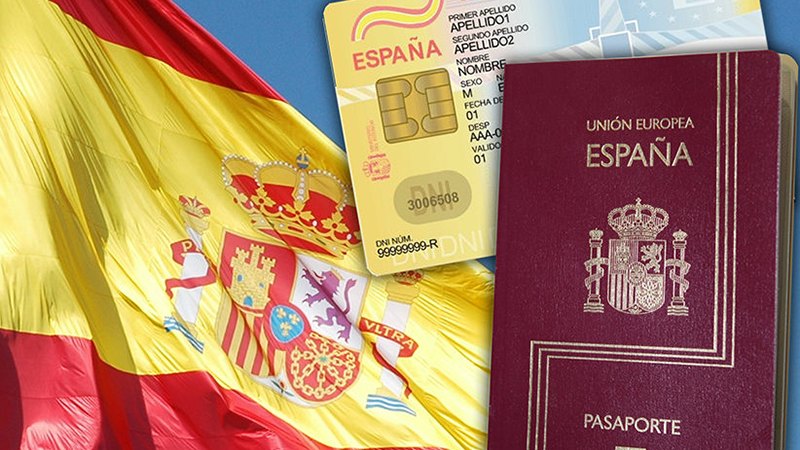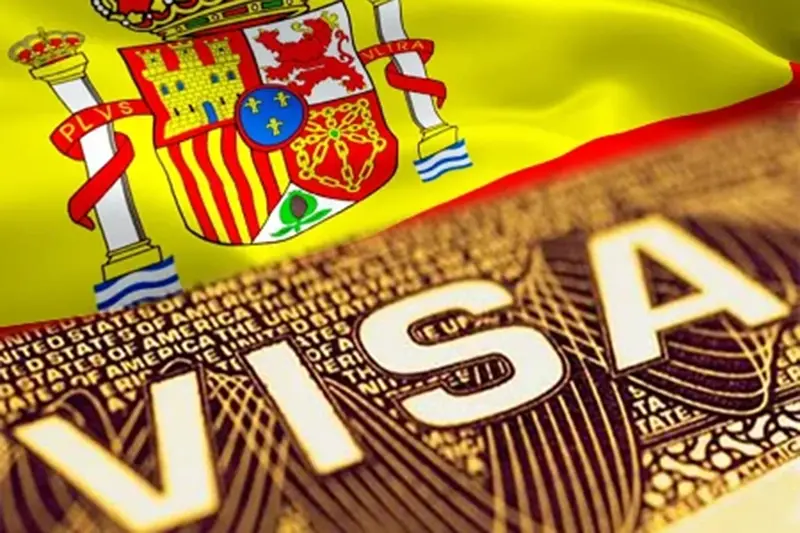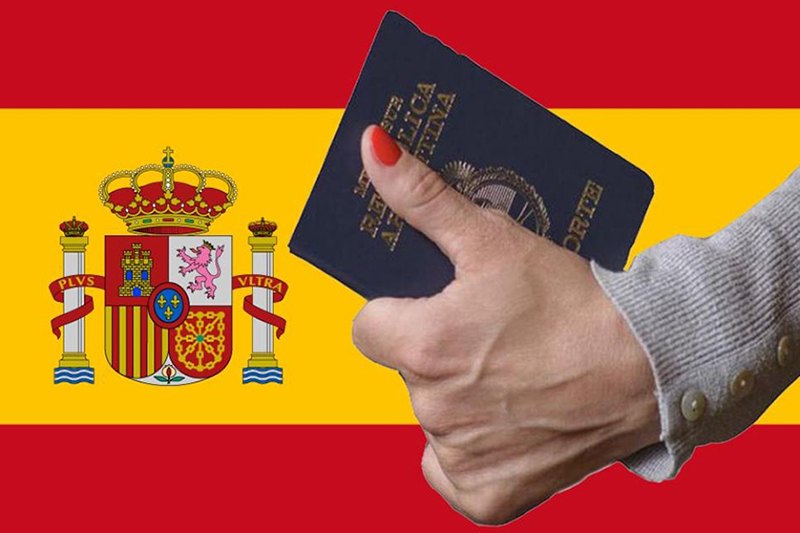
Spanish Visa Requirements for Property Buyers
Alexey | · 13 min. read
Investing in property in Marbella, a gem on Spain’s Costa del Sol, appeals to international buyers seeking luxury, culture, and scenic coastal beauty. However, understanding the Spanish visa requirements for property buyers is essential for a smooth and successful investment before diving into the process.
Here we'll cover the different visa types, their specific requirements, and practical steps to secure a visa as a property buyer in Marbella. Let’s explore why Marbella is a prime location for real estate investments and the key considerations for international buyers.
- Table of contents
- Why Marbella Captivates International Property Buyers
- Understanding Spanish Visa Types for Property Buyers
- Why You Need a Visa When Buying Property in Spain
- How Property Buyers Can Obtain a Spanish Visa
- Additional Pathways to Permanent Residency and Citizenship
- Practical Tips for Navigating the Visa Process
- Final Thoughts: Navigating Spanish Visa Requirements for Property Buyers
Why Marbella Captivates International Property Buyers
Marbella’s allure goes beyond its picturesque landscapes; it embodies a lifestyle that blends sophistication with natural beauty. Here are key reasons why this iconic coastal town remains a top choice for international property investors:
- A Distinctive Lifestyle Hub: Marbella stands out for its vibrant mix of high-end resorts, designer boutiques, and gourmet dining establishments. This unique blend caters to those seeking more than just a home; it offers an elevated way of life.
- Inviting Mediterranean Climate: With its mild winters and sunny summers, Marbella enjoys one of the best climates in Europe. Over 320 days of sunshine make it an ideal location for individuals who crave warmth year-round.
- Diverse Recreational Opportunities: Whether it's sailing, golfing, or exploring the Sierra Blanca mountains, Marbella offers endless activities. The town’s thriving cultural scene, including festivals, art galleries, and music events, ensures there’s always something to enjoy.
- Seamless Connectivity: Proximity to Málaga-Costa del Sol Airport allows effortless travel between Marbella and numerous global destinations, making it a practical and appealing choice for frequent travelers and remote workers.
This combination of luxury, culture, and connectivity sets Marbella apart as a premier location for those looking to invest in Spanish property.

Understanding Spanish Visa Types for Property Buyers
Spain offers several visa options that cater to different types of property buyers. Choosing the right visa depends on your investment goals, residency plans, and eligibility criteria. Below, we explore the main visas available to property investors.
1. Golden Visa Program
The Golden Visa in Spain is a popular choice among non-EU investors looking to combine real estate investment with residency in Spain. This visa, also called Investor Visa, offers a pathway not only for the investor but also for their family, providing numerous benefits that go beyond residency.
Key Benefits of the Golden Visa
- Residency for the Entire Family: One of the standout features of the Golden Visa is its inclusiveness. It covers the investor, their spouse, and children under 18, allowing the whole family to legally reside in Spain. Additionally, children over 18 who are financially dependent or have special needs can also be included.
- Freedom to Travel Across Europe: Golden Visa holders enjoy the benefit of unrestricted travel within the Schengen Zone. This makes it particularly attractive for individuals who frequently travel across Europe for business or leisure, as it eliminates the need for multiple visas.
- Pathway to Permanent Residency and Citizenship: After five years of continuous residency, Golden Visa holders can apply for permanent residency in Spain. Following ten years, they may qualify to apply for Spanish citizenship, granting them the advantages of EU citizenship, such as living, working, or studying anywhere in the EU.
Requirements for the Golden Visa
- Real Estate Investment: A minimum investment of €500,000 in real estate, which can be spread across one or multiple properties. The investment should be made without financing from Spanish banks to qualify.
- Proof of Financial Means: Applicants must demonstrate that they have sufficient funds to support themselves and their family members during their stay in Spain. This is to ensure financial independence without the need for local employment.
- Clean Criminal Record: Applicants must provide a certificate of a clean criminal record for the past five years, both from their home country and any other country where they have resided.
- Valid Health Insurance: Comprehensive health insurance that covers medical care in Spain is mandatory for all Golden Visa applicants.
2. Non-Lucrative Visa
The Non-Lucrative Visa is ideal for retirees, digital nomads, and individuals who wish to live in Spain without engaging in local employment. This visa suits those who plan to enjoy their property in Marbella while relying on savings, pensions, or passive income.
Key Benefits of the Non-Lucrative Visa
- No Employment Requirement: Unlike other visa options, the Non-Lucrative Visa does not permit the holder to work in Spain. However, they are allowed to live off their existing financial resources, such as retirement savings, rental income, or foreign employment. This makes it a favored choice for retirees and remote workers whose income originates outside of Spain.
- Renewable and Long-Term Option: The visa is initially valid for one year and can be renewed every two years for up to five years. After maintaining residency for five consecutive years, holders become eligible to apply for permanent residency, offering a long-term living arrangement without the need for employment.
- Schengen Zone Access: Similar to the Golden Visa, the Non-Lucrative Visa allows holders to travel freely within the Schengen Zone, making it a convenient option for those who frequently visit other European countries.
Requirements for the Non-Lucrative Visa
- Proof of Sufficient Funds: Applicants must show financial proof of at least €25,560 per year for the main applicant. An additional amount is required for each dependent, demonstrating the ability to sustain themselves without working.
- Comprehensive Health Insurance: Valid health insurance covering medical expenses in Spain is necessary. This insurance must meet certain coverage requirements to ensure applicants have access to healthcare without depending on public services.
- Clean Criminal Record: A clean record is mandatory, similar to other visa types, and must be supported by documentation from the applicant’s home country and any other country they have lived in.
- Medical Certificate: A medical certificate confirming good health is required, ensuring that applicants do not pose a health risk during their stay in Spain.
3. Temporary Resident Visa
The Temporary Resident Visa caters to individuals who plan to stay in Spain for an extended period (more than three months but less than one year) without the intention of seeking permanent residency. It offers flexibility for those looking to explore a medium-term stay, making it ideal for property buyers and long-term vacationers.
Key Benefits of the Temporary Resident Visa
- Flexibility for Medium-Term Stays: This visa is particularly suited for property buyers who need to spend several months managing their real estate investments, overseeing renovations, or simply enjoying extended vacations. It also serves as an excellent option for those who wish to experience life in Spain before deciding on a more permanent visa type.
- Renewable for Continued Stays: Although initially granted for a specific period, the Temporary Resident Visa can be renewed, offering the chance to extend your stay if needed. This provides a stepping stone for individuals who may want to eventually apply for long-term residency but wish to test the waters first.
Requirements for the Temporary Resident Visa
- Clearly Documented Purpose of Stay: Applicants need to clearly outline the purpose of their stay, whether it is property management, leisure, or preparation for a more permanent move.
- Proof of Accommodation: Documentation such as property deeds, rental agreements, or hotel reservations must be provided to confirm where the applicant will reside during their stay.
- Evidence of Financial Stability: Applicants must demonstrate sufficient financial resources to cover their expenses during their stay, without requiring employment in Spain. This can be shown through bank statements, proof of income, or savings.
- Health Insurance: A health insurance policy valid in Spain is required, ensuring that applicants can access medical care during their stay.
- Medical Certificate of Health: A medical certificate confirming that the applicant is in good health and free from communicable diseases must be included with the application.

Why You Need a Visa When Buying Property in Spain
Purchasing property in Marbella does not automatically grant residency or a visa. Here’s why securing the appropriate visa is essential:
- Legal Residency: Owning property without a visa limits your stay to a maximum of 90 days within a 180-day period under the Schengen Area rules. A visa allows you to stay longer legally.
- Access to Benefits: Visa holders gain access to essential services, including healthcare, and can navigate banking, utilities, and other administrative processes more efficiently.
- Path to Residency and Citizenship: Depending on the visa type, property investment can lead to long-term residency and, eventually, citizenship, enabling deeper integration into Spanish society.
How Property Buyers Can Obtain a Spanish Visa
The process of acquiring Spanish visa requirements for property buyers can seem complex, but breaking it down into steps can simplify it:
Step 1: Choose the Appropriate Visa Type
Determine which visa best aligns with your needs. Consider factors like investment goals, length of stay, and whether you wish to work or simply reside in Spain.
Step 2: Prepare Required Documents
Each visa type has specific documentation requirements, which typically include:
- Proof of Investment: Property deeds or purchase agreements demonstrating your investment.
- Financial Proof: Bank statements or financial documents showing you can support yourself.
- Health Insurance: Comprehensive coverage valid throughout Spain.
- Criminal Record Certificate: Confirming no criminal history.
- Medical Certificate: Attesting to good health.
Step 3: Submit the Application at the Spanish Consulate
Applications must be submitted to your home country’s Spanish consulate. Ensure all documents are translated into Spanish by a certified translator if required.
Step 4: Await Processing and Approval
Processing times vary, but it’s advisable to apply well in advance of your planned move to Spain.
Step 5: Renew or Upgrade Your Visa as Needed
Depending on your visa type, you may need to renew it periodically. If your goals shift, consider upgrading to a Golden Visa or applying for permanent residency.
Additional Pathways to Permanent Residency and Citizenship
After securing a visa and residing in Spain, property buyers may consider the long-term benefits of becoming permanent residents or citizens.
Permanent Residency
Living in Spain for five consecutive years on a qualifying visa makes you eligible for permanent residency. This status provides:
- Indefinite Stay: No need for visa renewals.
- Right to Work: Engage in professional activities without restrictions.
- Access to Social Services: Full access to healthcare and social benefits.
Requirements:
- Proof of continuous residence for five years.
- Financial stability.
- Demonstrated integration, such as language proficiency and community involvement.
Spanish Citizenship
For those wishing to deepen their ties with Spain, citizenship is the ultimate integration. After ten years of residency, you can apply for citizenship, offering the benefits of an EU passport.
Citizenship Benefits:
- EU Mobility: Freedom to live, work, and travel across EU member states.
- Full Rights: Voting, political participation, and access to exclusive benefits.
Requirements:
- Residency in Spain for at least ten years.
- Basic knowledge of Spanish language and culture.
- Proof of good conduct (clean criminal record).

Practical Tips for Navigating the Visa Process
Securing the right visa is a crucial step in your journey to owning property in Marbella, but it can often feel overwhelming, especially for first-time buyers navigating Spanish legal systems. The application process involves careful planning, gathering necessary documents, and understanding the specific requirements for each visa type. To help you move forward with confidence, here are some practical tips that can simplify the process and ensure you’re well-prepared at every stage:
How To Navigate the Visa Process
- Consult a Legal Expert: Navigating Spanish legal requirements can be tricky. Consulting with a lawyer specializing in immigration can streamline the process.
- Prepare Financially: Ensure you have all financial documents in order, including property purchase agreements, bank statements, and proof of passive income if applying for a Non-Lucrative Visa.
- Stay Informed About Changes: Immigration laws and visa requirements can change. Regularly check official Spanish government websites for updates.
For further information and updates on visa applications, visit official Spanish government websites: Spanish Ministry of Foreign Affairs, Spain Tourism Board, Spanish Ministry of the Interior, Spanish Ministry of Justice, and Spanish Public Employment Service (SEPE)
Final Thoughts: Navigating Spanish Visa Requirements for Property Buyers
Investing in property in Marbella opens the door to a unique blend of luxury, culture, and natural beauty, but understanding Spanish visa requirements for property buyers is a crucial step to making this dream a reality. Having the right visa can simplify the process and set you on the right course for your new life in Spain.
Each visa category comes with its own set of requirements, from financial proof and clean criminal records to health insurance coverage. Knowing these prerequisites in advance and preparing the necessary documents can help avoid complications and delays. Furthermore, understanding your long-term goals is essential: whether you plan to stay for a few years, apply for permanent residency, or ultimately seek Spanish citizenship, selecting the appropriate visa will streamline your journey.
Key Takeaways:
- Understand Your Visa Options: Take time to explore the different visas available and identify which one aligns with your needs. Whether it’s the Golden Visa for investors or a Non-Lucrative Visa for retirees (especially since Marbella is an ideal place to retire), your choice will shape your legal status and lifestyle in Spain.
- Prepare Financial and Legal Documents: Each visa requires proof of financial stability, valid health insurance, and, in some cases, evidence of property ownership. Being organized and prepared can make the application process smoother.
- Seek Professional Guidance: Navigating visa applications can be complex, particularly if you're new to Spanish legal and financial systems. Consulting with immigration experts or legal advisors who specialize in Spanish property law can provide valuable assistance, ensuring that all paperwork is correctly completed and submitted.
Marbella's property market is rich with opportunities, and its appeal as a premier destination for international buyers is undeniable. With a solid understanding of the visa requirements, you can confidently embark on your property investment journey, knowing that you’ve laid the groundwork for a smooth and successful transition. From the stunning coastline to the year-round Mediterranean lifestyle, owning property in Marbella means much more than just a financial investment—it’s a gateway to a coveted way of life.
If you're contemplating buying a house in Spain or looking to enhance your investment portfolio with a property in Marbella, our experienced team is here to guide you every step of the way. Let us help you find the perfect property to suit your needs. Contact us today to get started!